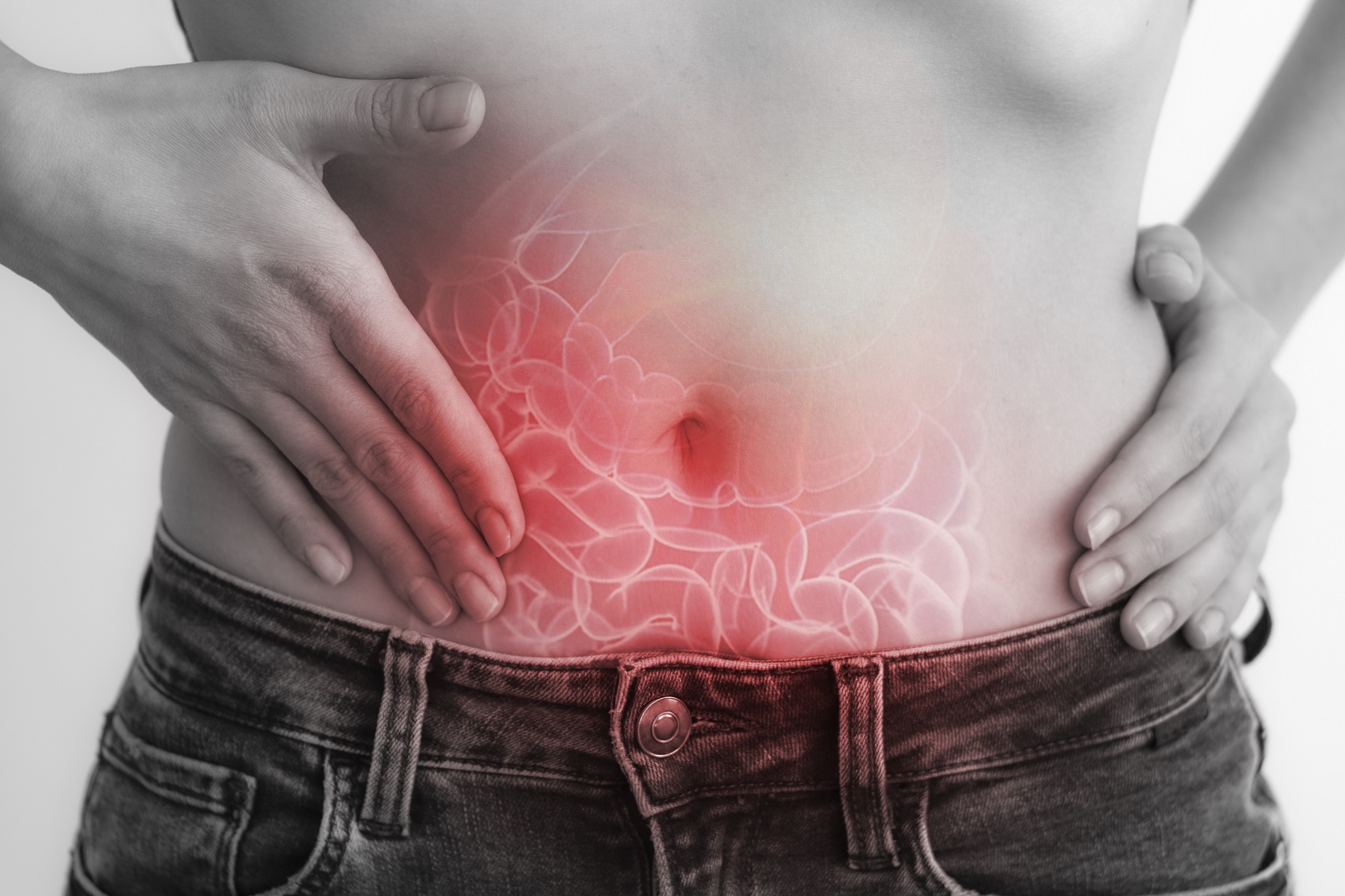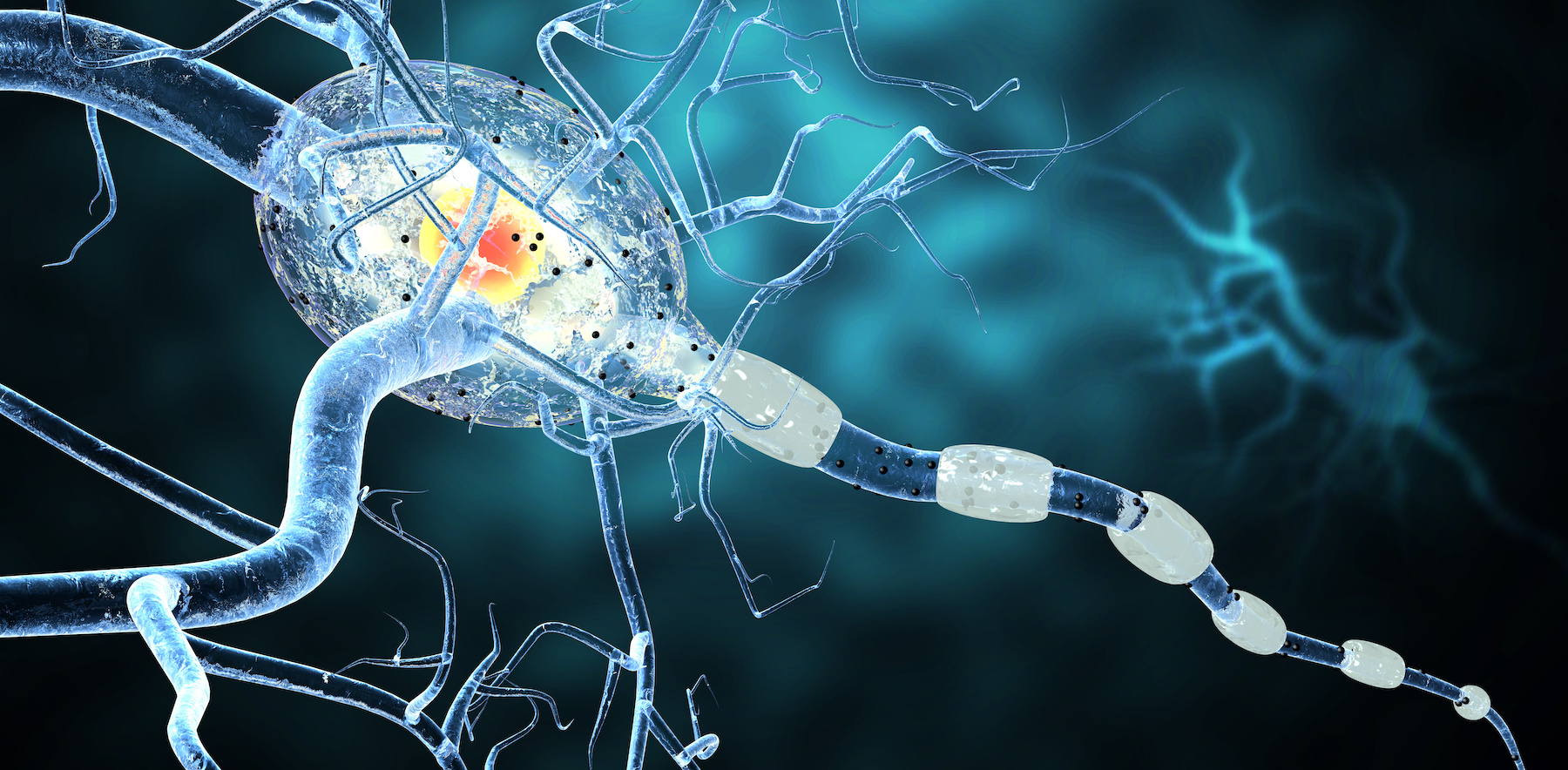

Whether you’ve been indulging in delicious vacation foods, or have just gotten off track with your diet, you might be experiencing:
- Bloating
- Stomach pains
- Constipation
- Diarrhea
- Nausea
- Reflux
Or maybe you’ve been experiencing these symptoms for a while, and you’re ready to finally find relief and get a proper diagnosis from your doctor.
After running tests, if you are lucky and seeing a functional medicine doc, they diagnose you with small intestinal bacterial overgrowth (SIBO) or intestinal methanogen overgrowth (IMO). (Side note: you can check out a video I recorded explaining the difference between SIBO and IMO here.)
Whew… the first step is complete.
You have SIBO or IMO, so now what?
It’s time for us to treat it.
Do you want to learn the basics of the treatment protocols for SIBO/IMO I use as a functional medicine doctor?
Keep reading to learn more!
Note: For some portions of this blog post, I may use the term “SIBO” in a way that encompasses IMO. You can read more about SIBO/IMO in part 1 of this blog series.
Top 10 Treatments for SIBO or IMO I Prescribe to My Patients
Before I reveal the herbal antimicrobials, prescription antibiotics, supplements, and overall treatment protocols for SIBO or IMO I prescribe to my patients, I need to clear something up first.
Treatment protocols are not 100% effective. In fact, most treatment protocols are only about 80% effective.
This is because we don’t have a test that gives us “specific enough” results. The current breath tests don’t tell us exactly what treatment will “kill” the overgrowing bacteria and/or archaea. And bacterial resistance to certain treatments is always a possibility. In other words, we don’t know exactly what types of bacteria are causing problems, and the bacteria may be resistant to certain treatments.
Because of this, many of my patients have to follow more than one treatment protocol. And unfortunately, a small percentage of my patients will have chronic SIBO that’s difficult to completely cure.
So, what treatments do I use for my patients? Let’s dive into my top 10 key treatments.
1. Prescription Antibiotics
The go-to treatment for SIBO/IMO is prescription antibiotics because they’re effective at reducing bacterial or methanogen overgrowth. Antibiotics reduce bacterial overgrowth by destroying bacteria or stopping bacteria from replicating. With SIBO, you want to remove the bacteria that are causing your symptoms.
Prescription antibiotics can also reduce inflammation and overall symptoms in the small intestine.
The most popular antibiotic is rifaximin (AKA Xifaxan). It’s an FDA-approved antibiotic that’s commonly used to treat IBS-D in addition to SIBO.
You’ll take Rifaximin orally in a pill form three times a week for two weeks. If symptoms don’t subside, you’ll repeat this treatment protocol one more time.
Some people may hesitate to take prescription antibiotics because long-term use of prescription antibiotics for health conditions, like acne or sinus infections, may have contributed to SIBO/IMO in the first place.
However, the positive benefit of rifaximin is that it’s not absorbed systemically and only acts in your small and large intestines. That’s why I commonly prescribe Rifaximin for my patients dealing with SIBO and IMO as part of their protocol. It’s also why Rifaximin has fewer side effects compared to other antibiotic treatments.
A second prescription antibiotic I commonly prescribe for patients with IMO is neomycin. Neomycin is commonly given to patients to decrease their risk of infection after intestinal surgery. It’s an antibiotic that has potential side effects like:
- Nausea
- Diarrhea
- Loss of balance
- Yeast overgrowth
- Hearing problems
Therefore, neomycin should not be taken for long-term use.
Rifaximin and neomycin can work together as an effective treatment for IMO, methane dominant “SIBO.” However, oftentimes one round of antibiotic therapy isn’t enough. It’s important to keep in mind.
A different second antibiotic I prescribe for patients with SIBO is metronidazole (AKA Flagyl). In this study, metronidazole was shown to eradicate SIBO in patients with Crohn’s disease. Overall, this antibiotic stops the growth of specific anaerobic bacteria and parasites. It’s used to treat infections like anaerobic infections, bacterial vaginitis, and abscesses.
Metronidazole is a small molecule, so it can easily diffuse into the bacterial membrane and damages the bacteria’s DNA. Metronidazole does have potential side effects like:
- Nausea and vomiting
- Diarrhea
- Dizziness
- Rash from an allergic reaction
- Seizures
It may also react with specific medications you are taking, so you can discuss the option to decrease your metronidazole treatment dosage or find another antibiotic option. It is also not advised to drink alcohol while on metronidazole.
While Rifaximin, neomycin, and metronidazole are the top three antibiotics I use for my patients, other antibiotics can be used to treat SIBO or IMO. It’s important to work with your doctor to determine what’s the best antibiotic for you, and IF prescription antibiotics are even right for you.
2. Herbal Antimicrobials
If you’re hesitant to take prescription antibiotics for your SIBO or IMO, herbal antimicrobials may be another option. They may be more gentle and balancing on your digestive system.
When taking herbal antimicrobials, I recommend that my patients do combination therapy with two or more antimicrobials. Five common herbal treatments my patients use are:
- Berberine: Berberine is the active part of many plants like the Chinese herb Coptidis Rhizoma, European barberry, and Oregon grape. This is similar to curcumin being the active ingredient in turmeric. It is antimicrobial and is also used to help balance blood sugar levels and even help with cholesterol.
- Oregano oil: Oregano has antimicrobial properties that can fight bacteria, candida, and parasites. It can be taken in capsule or liquid form (oil or tea). The active ingredients in oil of oregano include thymol, carvacrol, and rosmarinic acid. Thymol has been shown to reduce ulcers and gut inflammation. It can also stimulate your digestive enzymes to aid your digestive system’s function.
- Olive leaf: While you’re probably familiar with black and green olives, the leaves from the olive tree are an effective treatment. It can be taken as a tea or in capsule form and has antibacterial, antifungal, antiviral, and antioxidant properties.
- Black walnut: Black walnut is commonly found in combination with other herbal antimicrobials.
- Neem: Neem is an evergreen tree found in tropical climates in countries of Asia and Africa. It’s commonly used in oral hygiene such as treating gingivitis but is effective in treating SIBO as well.
The above list is by no means exhaustive, as there are other herbal antimicrobials, I use like allicin (garlic extract), grapefruit seed extract, uva ursi, wormwood, caprylic acid, monolaurin to name a few more. While herbal antimicrobial therapies such as oil of oregano and berberine were shown to be at least as effective as antibiotic rifaximin for SIBO/IMO, herbal antimicrobials may need to be taken for a longer period of time compared to prescription antibiotics to completely eradicate SIBO/IMO. You should pay attention to your symptoms too because herbal antimicrobials may kill bacteria beyond your small intestine, including beneficial bacteria.
Even though you can access these remedies over the counter, it’s imperative to work with a knowledgeable functional medicine doctor to ensure you’re using them safely and effectively.
3. Digestive Help
If you’re dealing with SIBO/IMO, your digestive system may need some extra support. If this is the case, I’ll use betaine hydrochloride (betaine HCl) and digestive enzymes for my patients.
- Betaine HCl: Betaine is a nutrient that’s extracted usually from sugar beets. Betaine HCl is the acidic form of betaine and acts like hydrochloric acid (HCl) in your stomach. I recommend it to my patients who have low acid production.
Low acid production may contribute to gut conditions like SIBO and impair your overall digestive system function, so betaine HCl can definitely provide you digestive benefits.
- Digestive enzymes: Digestive enzymes help your body break down food so you can avoid digestive upset and get the available nutrients you need from your foods.
You can think of your digestive system as a drive-through car wash center. Your food is a car that just came back from a road trip – it’s covered in some mud, dirt, and bugs. Your digestive enzymes are the soap that car wash owners use to clean your car.
If your car only gets cleaned with water, it could come out clean but there’ll probably be some dirt particles left on it. If your car is cleaned with water AND soap, it’ll leave the car wash center looking shiny and clean.
So just like your car needs water and soap for cleaning, your digestive system needs digestive enzymes to break down food effectively.
Three basic digestive enzyme types:
- Lipase: Breaks down fats
- Amylase: Breaks down starches
- Protease: Breaks down proteins
Another common digestive enzyme is lactase: it breaks down lactose in milk. Many people get digestive problems after consuming dairy. This is because they don’t produce enough digestive enzyme lactase to break down the lactose in dairy products.
In patients with SIBO/IMO, digestive enzymes can help to reduce symptoms like bloating, constipation, and diarrhea. They also help your body absorb nutrients properly.
Betaine HCl and digestive enzymes support gut motility and stomach acid production. And remember from part one of this SIBO and IMO guide – motility and stomach acid are vital to preventing and treating SIBO/IMO.
4. Spore-Based Probiotics
Spore-based probiotics are also known as soil-based probiotics because they’re good bacteria found in the soil. Humans came in contact with soil-based probiotics through farming and hunting.
If you think about life decades ago, we’d grow our food from the ground and eat it without washing. Now our modern age has become hyper-hygienic, so today we’re not consuming the beneficial bacteria from the ground.
Spore-based probiotics are commonly used to treat SIBO, but it’s important to note that not all probiotics are made the same. Some probiotics may hurt you and exacerbate your condition. By taking a common probiotic supplement, you could be making your SIBO/IMO symptoms worse.
Now when it comes to SIBO/IMO, it’s important to first remove traditional probiotics and prebiotic foods that are feeding the bacterial overgrowth. After you remove the foods that trigger your symptoms and eliminate the bad bacteria through antibiotics and/or herbal antimicrobials, the next step is to restore a healthy gut microbiome with prebiotics and probiotics.
Spore-based probiotics are important because they can survive the acidic conditions in your stomach. This way they make it down to your large intestine and can support your gut microbiome. There are dozens of spore-based probiotics found in the soil, but three common strains include:
- Bacillus Clausii
- Bacillus Coagulans
- Bacillus Subtilis
5. Serum-Derived Bovine Immunoglobulins
Serum-derived bovine immunoglobulins are the second line of treatment for SIBO and IMO. If my patient changes their diet, uses antibiotics, and takes probiotics but is still experiencing symptoms, I may put them on immunoglobulins.
Instead of only targeting your gut microbiome, immunoglobulins restore your mucous membrane and support your immune system. How does this help with SIBO/IMO?
Well, when you have SIBO, your gut’s mucous membrane binds to toxins. This can cause inflammation and lead to leaky gut syndrome. Immunoglobulins come to the rescue by restoring your gut lining and barrier.
In addition to healing the gut, serum-derived bovine immunoglobulins can help with gram-negative bacteria that create lipopolysaccharides (LPSs). LPSs are toxins that can become toxic if they enter your bloodstream. This is what happens when you have SIBO.
When you have SIBO, LPSs could be absorbed into your bloodstream at high levels. This can contribute to emotional distress like depression and anxiety, but may also contribute to brain fog, memory issues, and fatigue, especially after eating. Serum-derived bovine immunoglobulins can bind to LPSs and other toxins to neutralize bad bacteria to prevent these symptoms from occurring. In this study, serum-bovine immunoglobulins improved symptoms in 75% of patients who didn’t respond to other treatments.
Overall, serum-derived bovine immunoglobulins provide relief for a wide variety of symptoms SIBO patients suffer from.
6. Motility Support
To treat SIBO/IMO, you need to be sure your gut can move food through your digestive system smoothly. This normal pace of moving food is needed to reduce the recurrence of SIBO/IMO. Therefore, motility is key.
To support your motility, I recommend starting with herbal prokinetics that contain ingredients like ginger and artichoke. Herbal prokinetics can also be used to help control acid reflux and allow the food in your stomach to empty faster so you have less time for acid reflux to occur.
Prescription prokinetics can also be prescribed. I’ve also prescribed low-dose naltrexone and low-dose erythromycin for motility, as well as other prescription medications when needed.
- Low-dose naltrexone (LDN): LDN has been commonly used in conditions such as fibromyalgia, multiple sclerosis, Crohn’s disease, and pain support. However, it’s shown to be effective for gastrointestinal disorders too. LDN may support your migrating motor complex, decrease gut inflammation, decrease intestinal permeability, and overall aid in motility.
- Low-dose erythromycin: Erythromycin is an antibiotic that’s commonly used to treat infections. Low-dose erythromycin has been shown to reduce gastroparesis, a condition also called delayed gastric emptying. When you have gastroparesis, your food stays in your stomach for longer than it should. Low-dose erythromycin can help to reduce or avoid this and has also helped some of SIBO/IMO patients improve motility in the small intestine as well.
Key lifestyle habits like exercise, movement, and hydration can also support your digestive system’s motility.
Supporting your vagus nerve is also super important. The vagus nerve is the longest nerve in your body that connects your brain to organs in many systems like your digestive system (the enteric nervous system). When you support your vagus nerve, you can increase your gut motility. Therapies like acupuncture, visceral massage, TENS unit, frequency-specific microcurrent, meditation, deep breathing, gargling, singing, exercise, spacing out meals all support the vagus nerve.
7. Prebiotic Fiber
While there are antibiotics and probiotics, there are also prebiotics. Prebiotics are plant fibers that stimulate the beneficial and healthy bacteria in your gut. The plant fibers are difficult for your body to digest, so they end up undigested in your gastrointestinal tract where the bacteria can break it down and use it as food.
Examples of prebiotics that foster good healthy bacteria that do not aggravate include polyphenols and partially hydrolyzed guar gum.
- Polyphenols: Polyphenols are compounds found in your fruits, vegetables, and grains that give food their color. They can support your gut health by reducing LPSs and increasing the production of short-chain fatty acids. This is important for proper immune system function and preventing intestinal inflammation.
- Partially hydrolyzed guar gum (PHGG): PHGG is derived from guar beans and is used to support your metabolism and gastrointestinal health. It helps to feed the bacteria in your large intestine and form short-chain fatty acids like polyphenols. It’s helped to reduce symptoms like diarrhea in patients dealing with SIBO and can also help with constipation in patients with IMO (although must be started slowly).
8. Low FODMAP Diet
FODMAP stands for:
- F: Fermentable
- O: oligosaccharides
- D: Disaccharides
- M: Monosaccharides
- A:nd
- P: polyols
FODMAP foods are fermentable carbohydrates that can trigger digestive upset and symptoms like bloating, flatulence, and stomach cramps when there is an overgrowth. Examples include:
- Vegetables like garlic and onions
- Fruits like blackberries, mangos, and avocados
- Sweeteners like honey and agave nectar
- Legumes
- Lactose in milk, soft cheeses, and other dairy products
I put my patients on a low-FODMAP diet AFTER treatment temporarily to reduce digestive symptoms and prevent rapid regrowth of the wrong type of bacteria. It’s important to note that the low-FODMAP diet is NOT to be used long-term. I recommend the low FODMAP diet short-term to decrease feeding the harmful bacteria in your gut.
The low FODMAP diet can also be used after healing your SIBO/IMO to prevent it from recurring. While the diet isn’t meant to be followed long-term, I recommend 30-60 days of the low FODMAP diet after treatment. Afterward, I work with my patients to reintroduce foods they were avoiding back into their diets slowly, to figure out which ones are the biggest triggers for them.
If you have high-hydrogen sulfides after SIBO testing, I recommend sticking to low-sulfur foods for a time after treatment as well. This means reducing things like wine, dried fruits, processed meats, eggs, garlic, onions, and cruciferous vegetables for common examples.
9. Manual Therapy
I recommend manual therapy and visceral massage to treat abdominal adhesions and/or lymphatic congestion when it is a contributing factor. Why is this important?
SIBO/IMO is hard to treat in patients with abdominal adhesions from surgeries or internal scarring from conditions like endometriosis. These adhesions and lymphatic congestion can’t be healed through a pill. However, they can be through manual therapies like the Clear Passage® Treatment. This way you can clear the adhesions that are contributing to your SIBO.
The Clear Passage® treatment is a hands-on technique that breaks up adhesions, scar tissue, and blockages that could also be preventing SIBO/IMO treatments from working effectively. When the adhesions and congestion are cleared, gut motility, absorption, and medications can work more effectively.
10. Mind-Body Techniques
Lastly, mind-body techniques are helpful to balance your autonomic nervous system that’s needed for your digestive system. Some techniques include meditation, breathing exercises, yoga, biofeedback, and other techniques for the limbic system. Stress can contribute to SIBO/IMO, and of course practicing mind-body techniques can also help you manage your stress.
Let’s Treat Your Gut
While millions of Americans are battling digestive problems daily, I want you to know that relief is possible.
It all starts with getting a proper diagnosis and following a comprehensive treatment plan.
If you’re interested in a functional medicine approach to healing your digestive issues, we are currently seeing patients. To get started you can fill out our contact form here.
Do you have specific questions about the treatments that were mentioned above? Ask me below in the comments, I’d love to hear from you.
Here’s to your gut health!
Dr. Emily Parke
Share:
Dr. Emily Parke
Social Media
Most Popular Posts
Subscribe To Our Newsletter
Related Posts

Estrogen Metabolism: How It Works, Why It Matters, and Supplements for Healthy Estrogen Metabolism
Estrogen metabolism is vital to estrogen regulation. Learn how it works and how the DUTCH test can provide insight into hormonal imbalance.

The Paleo Diet Versus the Autoimmune Paleo Diet: Differences and Benefits
Learn the difference between the paleo and the autoimmune paleo diet, including food lists, what foods to avoid, and all the health benefits!

A Complete View of Multiple Sclerosis: Symptoms, Diagnosis, and Functional Medicine Treatment Options
Get a complete view of multiple sclerosis, including common symptoms and treatment options, including nutrition and supplementation.

Headaches and How to Find Relief: The Functional Medicine Way
Learn about functional medicine headache treatment, various headache types, and how to achieve lasting relief with complementary approaches.
